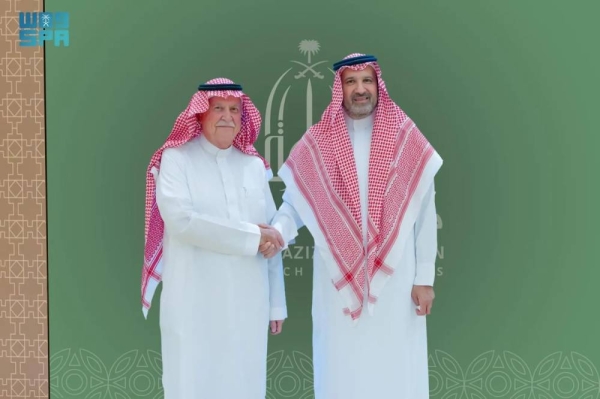Dr. Richard Mortel, editor-in-chief of the Darah Journal of Arabian Peninsula Studies, recently obtained Saudi citizenship, approved by Custodian of the Two Holy Mosques King Salman. This significant decision highlights Saudi Arabia’s commitment to attracting experts and thinkers from various fields to contribute to the country’s cultural and scientific development. During his meeting with Dr. Mortel, Prince Faisal bin Salman expressed the keenness of Saudi Arabia and its leadership in building a strong cultural and scientific society by welcoming individuals like Dr. Mortel.
Dr. Mortel, a renowned expert in Islamic history with a PhD from Cairo University, has dedicated 47 years to teaching at various Saudi universities and contributing to academic research. His work includes authoring 18 scientific research papers, books, and studies in national history, as well as serving as a scientific advisor at the King Abdulaziz Foundation. Dr. Mortel’s expertise in historical verification and academic editing has earned him recognition and honors for his contributions to enhancing cultural and historical knowledge in Saudi Arabia.
The decision to grant Saudi citizenship to Dr. Mortel not only acknowledges his significant achievements but also serves as a gesture of appreciation from the country’s leadership for his dedication to his academic field. By recognizing Dr. Mortel’s role in enriching Saudi Arabia’s cultural heritage and documenting Islamic history, the government is promoting cultural dialogue and knowledge exchange within the country. This move reflects Saudi Arabia’s commitment to fostering a diverse and inclusive society that values the contributions of individuals like Dr. Mortel.
In addition to his academic achievements, Dr. Mortel’s contributions to historical research and academic editing have had a lasting impact on Saudi Arabia’s cultural landscape. By joining the ranks of prominent experts and thinkers in the country, Dr. Mortel continues to inspire future generations of scholars and researchers to pursue excellence in their fields. Through his work, he has helped bridge the gap between different cultures and promote a better understanding of Saudi Arabia’s rich cultural heritage.
As an advocate for cultural dialogue and knowledge exchange, Dr. Mortel’s presence in Saudi Arabia serves as a testament to the country’s commitment to embracing diversity and promoting academic excellence. By granting him citizenship, Saudi Arabia has recognized his invaluable contributions to the field of Islamic history and academic editing, further solidifying his role in shaping the country’s cultural and intellectual landscape. Dr. Mortel’s journey is a reflection of Saudi Arabia’s openness to welcoming individuals from diverse backgrounds who are dedicated to advancing knowledge and promoting cultural understanding.































